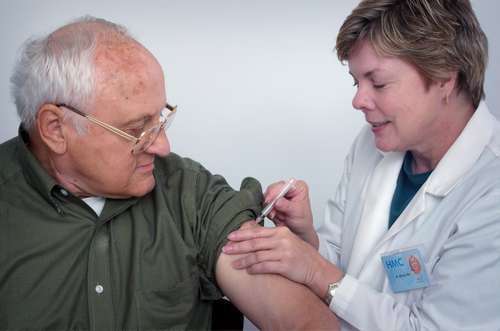Most people do not know they have high cholesterol until they are down with a heart attack, and this makes sense because high cholesterol usually does not show any symptoms.
In the U.S., High cholesterol is one of the most common health issues, affecting nearly 94 million adults according to the Centers for Disease Control and Prevention (CDC).
What is Cholesterol?
Cholesterol is a waxy-looking fatty substance produced in the liver. Cholesterol is important in cell membrane formation, production of hormones, and synthesis of vitamin D. Because it is insoluble in water, and can’t travel through the body, it requires an aid.
Lipoproteins are particles that transport cholesterol through the bloodstream and they are of two types.
- Low-density lipoprotein (LDL): This type of lipoprotein also known as "bad" cholesterol, transports cholesterol particles throughout your body. It builds up in the walls of your arteries as it transports cholesterol through the bloodstream, making the arteries hard and narrow for blood to flow through.
- High-density lipoprotein (HDL): HDL is known as the "good" cholesterol. It picks up excess cholesterol, transports it through the bloodstream, and takes it back to your liver.
Causes of High Cholesterol
All the cholesterol needed for the body to function properly is made in the liver. However, eating habits, exercising, and other factors can influence the level of LDL cholesterol made by the level. Here are some causes of high cholesterol:
- Unhealthy eating habit
- Not exercising
- Overweight and Obesity
- Smoking
- Hereditary
- Effect of using medication that lowers HDL cholesterol levels
- Underlying medical condition
Warning Signs of High Cholesterol
Many people do not know they have high cholesterol until they experience one of the warning signs:
Coronary Artery Disease (CAD)
Coronary artery disease (CAD) is a type of heart disease that occurs when plaque buildup caused by high LDL leads to the narrowing and hardening of the main arteries that supply your heart with blood.
Common symptoms include angina, chest pain, nausea, fatigue, shortness of breath, pain in your neck, jaw, upper abdomen, or back.
Stroke
A stroke is a medical emergency caused by the buildup of plaque due to high cholesterol limiting the blood supply to an important part of your brain. It is important to get urgent medical attention if you experience the symptoms of a stroke.
Heart Attack
A heart attack happens when the arteries that supply the heart with blood narrow due to the buildup of plaque. This is also known as atherosclerosis, and happens slowly over time without the incidence of symptoms.
Heart attack occurs when a piece of the plaque breaks off and forms a blood clot around the plaque. It can block blood flow to the heart muscle, depriving it of oxygen and nutrients. This occurrence is called ischemia.
This lack of oxygen damages the heart or a part of the heart, leading to its degeneration. The medical terminology for heart attack is “myocardial infarction”.
Peripheral Arterial Disease (PAD)
Peripheral artery disease (PAD) occurs when plaque builds up in the walls of the arteries. This blocks the flow of blood in the arteries that supply blood to your kidneys, arms, stomach, legs, and feet. The symptoms include discomfort in the leg, fatigue, cramping, leg pain while walking or exercising, and achiness.
How To Reduce Your Cholesterol Level
- Here are simple ways to reduce your cholesterol levels.
- Adopt a good eating habit.
- Maintain a good body mass index.
- Engage in regular exercise.
- Reduce sugar intake.
- Seek advice from a health care provider.
The Bottom Line
High cholesterol is a common yet serious health condition that shows no symptoms but can lead to heart disease, stroke, and other complications. Since it shows no symptoms, regular check-ups are important to enjoy a healthy life. Better diet, regular exercise, and reducing sugar intake come in handy in managing cholesterol levels effectively.




